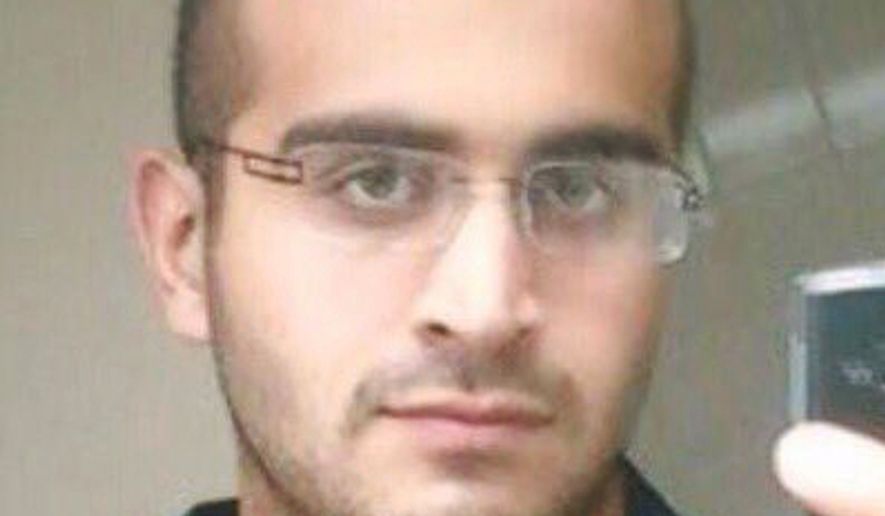FBI Director James Comey on Monday defended the bureau’s previous work investigating the man who killed 49 people at an Orlando nightclub this weekend in the deadliest mass shooting in modern U.S. history, saying thus far he does not think agents should have done anything differently.
Mr. Comey offered new details about the FBI’s 2013 and 2014 contacts with 29-year-old Omar Mateen, while noting that the shooting inside Pulse nightclub appeared to have been “strong indications of radicalization by this killer.”
“We’re also going to look hard at our own work, to see whether there’s something we should have done differently. So far, the honest answer is I don’t think so,” Mr. Comey said.
The FBI director described his agency’s first contact with Mateen, who died in a gun battle with police Sunday, as a 10-month preliminary investigation that was triggered when Mateen claimed to coworkers at the private security firm that employed him that he had family connections to al Qaeda as well as mutual acquaintances with the Tsarnaev brothers, who carried out the deadly Boston marathon bombing.
The investigation, initially authorized for six months and later extended for an additional four months, included use of confidential sources who engaged Mateen, though Mr. Comey declined to describe their specific interactions. FBI investigators did interview Mateen as a part of the investigation and reviewed his communications and prior travels overseas to Saudi Arabia.
Mr. Comey said Mateen did admit to making the statements to coworkers, but said he did so “in anger, because he thought his coworkers were discriminating against him and teasing him because he was Muslim.”
During the probe, Mr. Comey said Mateen was placed on a watch list, though he declined to specify it was a no-fly list or the Terrorist Identities Datamart Environment (TIDE) database.
He was removed from the list and not added back on it when he again came on the FBI’s radar in 2014 after his name was brought up as law enforcement officials were investigating a suicide bomber from Florida and officials learned that Mateen had previously attended the same mosque as the bomber.
“Our investigation turned up no ties of any consequence between the two of them,” Mr. Comey said.
As part of the 2014 probe, which Mr. Comey said did not amount to a formal investigation of Mateen, agents were told by someone who knew Mateen that they had concerns about him radicalizing because they knew he had watched Anwar al-Awlaki videos in the past. But the person told investigators that since that time, Mateen had married and had a child and he no longer considered him a possible threat.
Investigators are still probing Mateen’s exact motivations and actions taken ahead of the deadly attack, which also wounded 53 others. The gunman spoke with a 911 emergency call taker in the middle of the attack, pledging allegiance to the leader of the Islamic State. However his prior pledges of solidarity with the Tsarnaev brothers and the suicide bomber who acted on behalf of al Nusra Front, a group at odds with the Islamic State, seemed contradictory.
“So far we see no indication that this was a plot directed from outside the United States and we see no indication that he was part of any kind of network,” Mr. Comey said, adding that investigators are also still working to understand the role that anti-gay bigotry may have played in motivating the attack on the LGBT nightclub.
• Andrea Noble can be reached at anoble@washingtontimes.com.




Please read our comment policy before commenting.